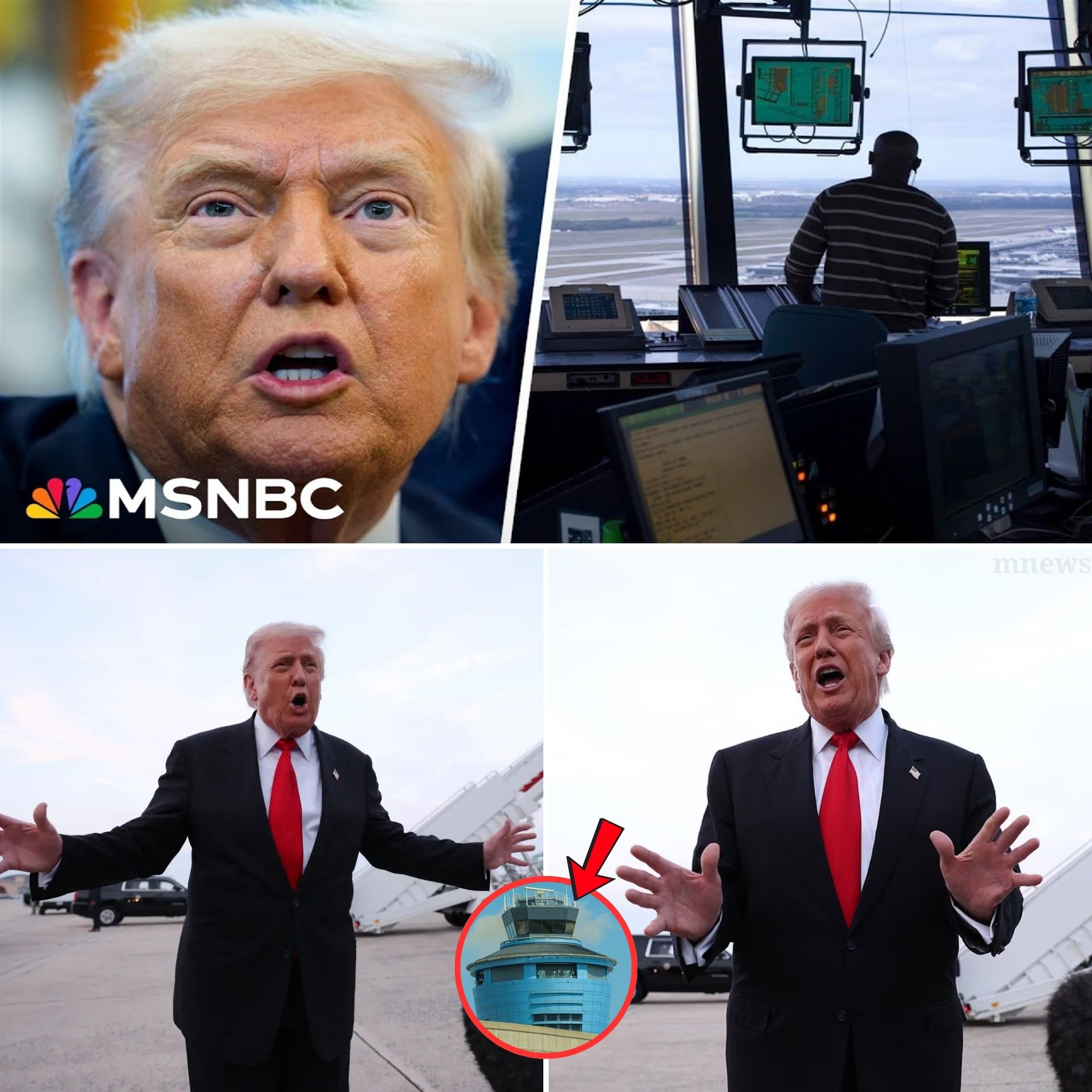In a startling turn of events, President Trump issued a stern ultimatum to air traffic controllers, demanding they return to work or face significant penalties. This unprecedented move comes in the wake of a government shutdown that has left many in the aviation sector reeling, as operational disruptions threaten to escalate ahead of the busy holiday travel season.

Retired air traffic controller Harvey Skolnick and travel expert Brian Kelly provided insight into the precarious state of the air traffic system during a recent discussion. Kelly emphasized that there is no immediate return to normalcy for air travel, predicting a fragile recovery that could take weeks. “The system is very fragile right now,” he noted, highlighting that many airlines are on the brink of operational meltdowns due to staffing shortages exacerbated by the ongoing crisis.
Controllers have been working long hours without adequate time off, leading to an alarming spike in sick calls. Skolnick explained the impact of this staffing crisis: when a shift that should have 8 to 10 controllers sees only four show up, the entire system struggles to manage the air traffic safely. This situation has prompted many travelers to alter their plans, with reports of cancellations and a shift towards driving instead of flying.

Amidst this turmoil, President Trump’s comments have sparked outrage among air traffic controllers. He threatened to dock pay for those who do not return to work and proposed a $10,000 bonus for those who do. Skolnick criticized this approach, arguing that it could further alienate a workforce already feeling undervalued. “It’s not the way I would try to get people to come back to work,” he said, suggesting that a more positive incentive, such as immediate back pay and a review of compensation structures, would be more effective.
The situation is further complicated by a significant shortage of air traffic controllers, with estimates indicating a deficit of around 4,000 personnel. This chronic under-staffing has been a longstanding issue, and as Kelly pointed out, the challenges facing the aviation industry may persist well beyond the current crisis. Travelers are left in a state of uncertainty, and the looming threat of operational disruptions could cast a shadow over holiday travel plans.
As the government grapples with the implications of the shutdown, the aviation industry stands at a critical juncture. With air traffic controllers already stretched thin, the need for a comprehensive solution that addresses both immediate staffing concerns and long-term workforce sustainability has never been more urgent. The coming weeks will be pivotal in determining whether the aviation system can stabilize in time for the holidays or if further disruptions lie ahead.





